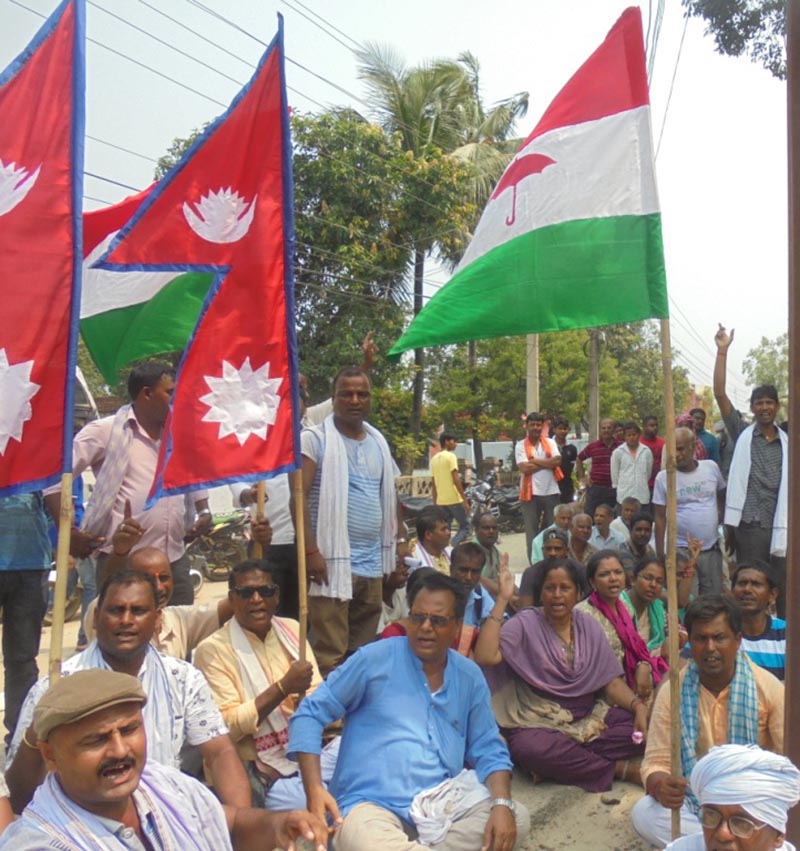‘Tie up with RJP-N to benefit NCP in Province 2’
Kathmandu, December 19
The ruling Nepal Communist Party (NCP)’s decision to forge alliance with Rastriya Janata Party-Nepal to secure two seats in the forthcoming National Assembly election is aimed at pitting RJP-N and Samajwadi Party-Nepal against each other and making it impossible for the Nepali Congress to join hands with these parties for electoral gains.
President of Nepal Democracy Foundation Jay Nishant said the two-point agreement signed between the NCP and the RJP-N yesterday has sent jitters across Province 2, where the RJP-N and the SP-N run coalition government. “But, I do not think this agreement could serve as the ground for long-term partnership or collaboration between the two parties,” he added.
RJP-N, which had extended outside support to Prime Minister KP Sharma Oli, withdrew it last year accusing the government of not doing anything to address the party’s demands, including the issue of constitution amendment.
RJP-N had held rounds of unity talks with SP-N in recent months, but stopped the process lately saying the SP-N was not ready to quit the government, a pre-condition for unity.
Nishant said NCP chose to forge NA poll alliance with RJP-N, mainly to achieve three goals — to maintain equidistance with RJP-N and SP-N, create rift between these two parties by opportunistically playing favouritism with them and make it impossible for the NC to collaborate with RJP-N and SP-N. He said the NCP’s motive to sign the agreement was also guided by its effort to remain the largest political force in Province 2.
Political analyst Chandra Kishore, however, said the two-point agreement would harm RJP-N in Madhes where people voted for the party mainly to champion the cause of constitution amendment.
“This agreement does not say anything about constitution amendment. People of Madhes voted RJP-N not to send its leaders to the NA but to secure amendment to the constitution,” he argued. He said the RJP-N risked losing political grounds in Madhes by signing the two-point agreement with the NCP, whom it had treated as political bête noire. “As long as Lalu Yadav of Bihar and Mawati of UP remained committed to the empowerment of deprived and marginalised communities, they ruled their states. The day they indulged in nepotism and favouritism, they lost their vote bank. RJP-N may suffer the same fate,” he argued.
Another political analyst Tula Narayan Shah said RJP-N’s decision to forge NA poll alliance with the NCP exposed its double standards as it had been saying that unity was possible with SP-N only when the latter quit the government.
“This deal can be a ground for the RJP-N to collaborate more with the NCP in the future. I won’t be surprised if the SP-N is expelled from NCP-led government at the centre and if the RJP-N and SP-N part their ways in Province 2 where they have coalition government at present,” said Shah.
Asked to comment on the agreement, SP-N Chair Upendra Yadav, who is Deputy Prime Minister and Minister of Law, Justice and Parliamentary Affairs, said he was not surprised by the deal. NCP did not forge alliance with his party because for NCP sealing a deal with SP-N would have become very difficult.
He said he was not worried about the prospect of RJP-N and NCP collaborating more in the days ahead.






